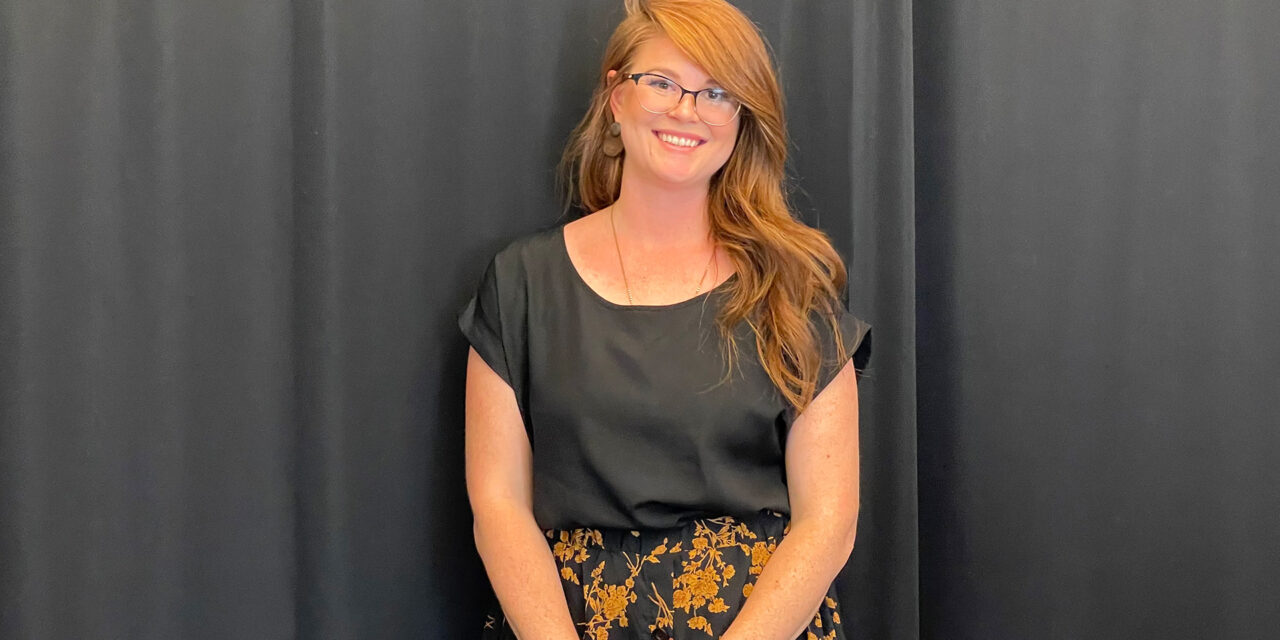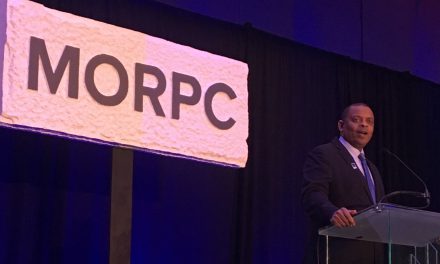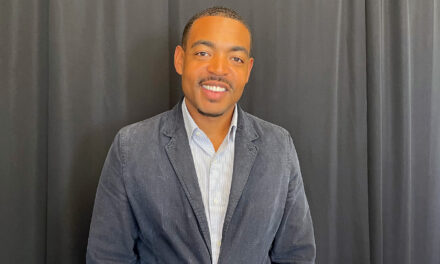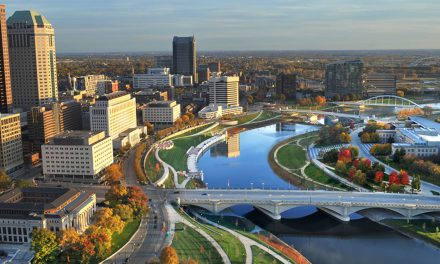Podcast: Play in new window | Download
Subscribe: RSS
Tim Fulton 00:08
Ladies and gentlemen, welcome to the confluence cast presented by Columbus underground. We are a weekly Columbus centric podcast focusing on civics, lifestyle, entertainment, and people of our city. I’m your host, Tim Fulton. This week. In anticipation of this fall’s election, the confluence cast is endeavoring to introduce Columbus voters to the 12 Council and two mayoral candidates in their own words. Today, despite the challenges that the city faces, Melissa green Council candidate for District Six remains optimistic about the future of Columbus. In today’s interview, green talks about her background in social work, program ideas, and the importance of neighborhood communication. You can get more information on what we discussed today in the show notes for this episode at the confluence cast.com. Enjoy the interview. Sitting down here with Melissa green candidate for Columbus City Council for District Six, Melissa, how are you?
Melissa Green 01:09
I’m doing good. How are you?
Tim Fulton 01:11
Good. Let’s kick it off. Just tell us a little bit about yourself and sort of what brings you to this candidacy?
Melissa Green 01:17
Yeah. So probably first and foremost, I’m a mom, I have a two and a half year old son. I am in a long term relationship with a small business owner and environmental entrepreneur. And I’m a very proud licensed social worker, my background and my specializations in macro social work, and more specifically in the substance use disorder space and harm reduction space. So any interventions for folks who are experiencing active addiction would be kinda,
Tim Fulton 01:47
why do you apply the word macro to that? What does that mean?
Melissa Green 01:50
Well, so I think kind of where I specialize is more in the social, like welfare, policy law sort of interventions, things systems level work. So a lot of times I think when people think of social work, we have kind of a one dimensional view of what that is mostly in the kind of like the Child Welfare context, right? So your child welfare system workers, but their field is incredibly dynamic. And it requires people that are working in direct practice, program policy development, as well as kind of that political advocacy work, which is kind of where I’m at right now.
Tim Fulton 02:25
Is it fair to say that you are a social worker, but not a case? Worker, then?
Melissa Green 02:30
Yes, okay. Yeah. Cool.
Tim Fulton 02:33
And then what brings you to being a candidate?
Melissa Green 02:36
Um, well, I mean, so I think for me, you know, kind of starting off in my career, I did work and direct practice as a child and family therapist. And I didn’t have to do that job for very long before I started seeing recurrent patterns across my clients. So as a therapist, right, it’s my job to assess and diagnose, you know, a kid that’s coming to me with some sort of mental health condition, right, so that they can receive treatment for it. But what became really obvious to me very quickly is that I wouldn’t necessarily describe the children I was working with, or their families as having a quote, unquote, disorder, what I was seeing is that their presenting symptoms were more the result of the abnormal situations that they were experiencing in their life, and them having normal reactions to those. And so for me, you know, it was like, Well, you know, I could treat this one child, but then, you know, we’re going to have to continue the cycle, there’s going to be another one and another one after that. So where can I go to have the greatest positive impact to do the most good and to kind of address the inequities in our system that are contributing to the persistence of these conditions. And so that’s kind of what drove me into macro social work. And throughout my career, I feel like I’ve been kind of following this path of, of, you know, trying to make decisions and make career moves, where I’m able to have a larger systemic, you know, kind of positive impact in the world. And so I think that finding myself here today, I definitely didn’t think that becoming a social worker was going to be my one way ticket into public office. I don’t think many folks do, do kind of, you know, imagine themselves in that role, but you do become a social worker, because you care and you want to dedicate your life to helping communities and helping people reach their full potential. And so being here today is kind of a culmination of that journey that we’ve been on to just try to do the most good that I can with the time that I have.
Tim Fulton 04:50
And that roll into the council would then contribute, try to basically solve some of those systemic issues that you’ve previously identified. Yeah, yeah. That’s the Okay, gotta talk through, either through that lens or through a citizen lens or a politician lens of what issues you believe Columbus is facing.
Melissa Green 05:12
Well, I mean, I think that Columbus is not that dissimilar to a lot of other cities across the United States, you know, we have some real social economic inequalities that we’re facing, I think part of that is a result of, you know, the rapid growth that we’re experiencing, coupled with a pandemic coupled with, you know, just overall in society, you, we haven’t always done a good job of taking care of people, especially those that are experiencing hardship. And so for me, you know, coming on to counsel, I definitely feel like there are a few core areas that I immediately want to get to work and start to have a positive impact. And those would, would be in the environmental space. And then looking at our interventions to address substance use disorder across Columbus and building upon the work that we’ve done, that kind of got stalled in a lot of ways because of the pandemic. And then also trying to take a really a really comprehensive look. And we’re having a lot of conversations across the city about housing and the need for housing. But but you know, kind of coupling those conversations with a really comprehensive look at how we can better support people who are currently unhoused that might be living on the land and building out a system here in Columbus that is able to meet the needs of that community across a full continuum of care. But kind of embedded in those three things that I’m most passionate about and ready to get to work on immediately, I think it’s kind of this overarching problem that we’re facing, not just in Columbus, but as a society in general, where we’ve, we, it seems like we’ve kind of lost touch with each other, we’ve we’ve lost this sense of connection. You know, when you’re looking at in the substance use disorder, disorder space, you know, we talk a lot about how the opposite of addiction isn’t sobriety, the opposite of addiction is connection. And we would talk about, you know, interventions to support people who are currently unhoused, you know, we can point to commonalities across the community, which are certainly I don’t want to generalize and paint everyone with a broad brush, but you know, common things that folks are experiencing addiction or mental health challenges. But we all have people in our lives that have experienced those same issues. Right. And, and the difference between why they might not be on the street is because they have community, right. And so we’ve had we were experiencing, I think this almost like catastrophic loss of community that it’s just kind of woven throughout these issues, that we’re experiencing the rises and violence, environmental issues, and littering and trash, you know, kind of this, this lack of accountability to each other, which is a lot more difficult to legislate. It’s a lot easier just to stack bricks on top of each other and build a house somewhere. Yeah. But I think I think, you know, making sure that that’s at the forefront of the way that we’re legislating, making sure that it’s a present part of the dialogue that we’re having as a community, I think is an important first step to being able to then kind of build a coalition that can address these issues holistically.
Tim Fulton 08:28
So there’s some legislation you can do right to address those three core areas that you talked about, which are environmental issues, substance abuse issues, and then housing, whether that’s the folks that are unhoused, or simply making sure that there is affordable housing in the city, those seem legislative will is the that other part that that overriding part, a stigma addressing issue or a just sort of how how we talk about these things and how we think about these issues?
Melissa Green 09:04
I think it’s a little bit of both. Okay. I think I think it’s important to have these conversations. So I mean, making you kind of helping a long, broad sweeping societal change, obviously, is like a very big undertaking, and it takes years and generations even, to kind of reframe in all of our minds the way that we are supporting people and one another. But I think, you know, it starts with, you know, having direct conversations about stigma, it starts with making sure that as we’re legislating we’re connecting the dots, like a good example would be, you know, the work that’s happening in our in our library system, for example, right, the core mission and values of a library probably, you would think would be around an equitable access to knowledge and education right. An opportunity to learn But what what we see in a lot of our libraries specifically on the hilltop, you know, where I live, they they do a lot of human services work, right, they do a lot of connecting people to resources, they now have their own specialists that they’ve hired to be able to support people who are coming in that are unhoused, or might be experiencing addiction and try to help get linkages for them. And so that, as they were kind of putting plans in place for the development of the library system, that wasn’t at the forefront, probably, of what they were anticipating. Right. And so then, you know, I think the lens through which I approach a lot of these problems is, and how I think we can, how we can sort of naturally start baking into the pie supports for one another, is by keeping that always at the forefront, you know, keeping the people centered in our conversations and our discussions and our work and kind of anticipating the needs that might exist as we’re legislating so that we’re naturally baking them into the pie. It’s not something we’re having to respond to down the road.
Tim Fulton 11:01
Okay. Switching gears just a little bit, tell me about we’re entering into a new districting system and Columbus, can you give sort of your thoughts on that, and how you believe that will affect you as a potential council person?
Melissa Green 11:19
Um, yeah, you know, I didn’t participate in the, in the redistricting commission or in the charter Review Commission, so I wasn’t really an active part of the process of getting us to where we’re at today. I think that, it, I think that it’s really exciting time, I think it’s exciting time, because we’re changing the structure of council will treat we’re changing the number of council members that are here. And I do really value just even as a constituent have, having the districts and knowing that there’s going to be people that are kind of within our proximity that are, you know, involved in in our individual neighborhoods and activities that are going to be working in council. I think that it is an interesting kind of system that we’ve set up here. Because, you know, historically, it’s always, you know, a lot of places anyways, most most places seem like there’s this, this dichotomy this, it’s either at large, or you have a full Ward system. And what we’ve done here is really kind of this find this third way of doing things, something that I think really kind of taps into the best of both of those two systems. I do state level advocacy work all day. And so we work a lot, especially recently through the budget process, across the street at the statehouse, trying to push for changes and legislative changes. And one thing that I think has been so frustrating now, for me, I think more than ever, and maybe it’s just seems like it’s more on the surface. But you know, every single week, we have legislators that are driving into our city, from other parts of the state, that are creating laws and policy and legislation that negatively impacts the health and the safety of our neighborhoods here in Columbus, they are trying to restrict our bodily autonomy. They’re trying to ban our black histories, they’re trying to erase all of our LGBTQI plus identities. They’re trying to put weapons of war in the hands of people where they don’t belong. And it’s damaging to our neighborhoods here in Columbus. And then those folks leave at the end of the day, they get into their cars, they drive home to their neighborhoods, and you and I never have an opportunity to vote for them or against them, because we don’t live in their neighborhood. And I, I you know, that doesn’t feel very democratic to me. And I don’t know that we’re at a point right now in Columbus, where we want to be pitting neighbors, against neighbors and neighborhoods, against neighborhoods. So to be able to kind of tap into, you know, both the best of having someone who has been engaged in your community, who understands and drives your streets on the way to work every day, while also making sure that we’re also able to work together and share a unified vision I see that as, as being a really interesting concept at a minimum. Democracy is a great experiment. And so hopefully, you know, as we keep going on, we can be able to be flexible and amenable to changes as we learn what works better and what doesn’t.
Tim Fulton 14:23
Gotta Lastly, want to ask you basically, what’s your what’s your pitch? What’s your unique value proposition for why folks should vote for you?
Melissa Green 14:33
Um, you know, I mean, I think I think I bring a really unique perspective into this work. We have never had a licensed social worker who served on Columbus city council before which is really interesting to me because right now we’re at this point where sometimes it feels like social works or social workers are kind of this one size fits all solution, you know, addiction or poverty or you know, housing insecurity or now here in Columbus police reform and so so I want to be able to kind of add this new tool into the toolbox in this perspective, as we are kind of working together to to figure out where we go from here during this time of growth, I think is really an incredibly unique opportunity. And to be able to kind of build coalition, I think, for me, as well, as someone who served has worked in the field for a long time, you know, the work that we do as social workers or folks in human services that are trying to help people in the community reach their full potential, and overcome challenges and barriers, right, that work has always felt so politicized, it’s always felt so regulated, and you know, the funding that gets allocated is dictated by people. And the rules that are set are dictated by people at the top, who I’ve never felt like had a full understanding right of what the real implications would be, as they trickle down into the work we’re doing and towards the community happens more, you know, at the state and federal level with like federal guidelines around accreditation, and things like that. But just to just to be able to kind of create space for inclusion in those processes for other folks in the field, as well as for the people that we’re serving in the community, I think, is a really exciting opportunity, and I am ready to get to work.
Tim Fulton 16:25
Okay. Every podcast interview, not just these Council candidate interviews, I ask what do you think Columbus is doing? Well, and what do you think Columbus is not doing so well.
Melissa Green 16:37
So I think that Columbus is a incredible place where folks who want to become engaged. There’s easy pathways for folks to do that if they want to a good example, kind of like, what led me down this road even to begin with, right? is back in the day used to live on the south side, right? Oh, no. Well, on the on the South Side, back in the day, the United Way, used to find this little newspaper called The South Side voice, and it would show up at your house weekly. And so I was kind of new to Columbus, and was feeling this kind of missing link, wanting to have more sense of community. And there was this little teeny, tiny, classified ad in the paper that was, you know, just kind of something along the lines of are you interested in getting involved in your community or your civic association, contact your neighborhood liaison, and I did, and I went to this meeting, and I met with her for an hour and I walked out of the building. And I got in my car, and I’m like, That’s the job I want to do. Like, that’s that this is like, where I need to be engaged. And so you know, just through that kind of a little bit of a process was able to get involved in all kinds of activities that I would have otherwise never known were happening in the community. And everyone was so welcoming any idea you brought to the table, you know, there’s someone that can help you help you actualize that, you know, it’s kind of a dream that you can do it sort of study. One of the things though, that I think that I think we should be always looking to do better, is telling our stories, I think it kind of gets back to this, this piece that we talked about around connection, right? You know, sharing with people, our successes and helping kind of carve out, carve out an identity isn’t just important for you know, brand development of a city right is important in engagement, right? Like if you don’t have a sense of hope, if you don’t have a sense of belief, if you don’t see all of the work that’s happening in the community, or at the city, but especially in the community, all the community leaders who are activating to try to help uplift each other and the folks around them all the incredible nonprofit organizations that are working day in and day out, to help people overcome hardship. If we’re not sharing those successes in those stories with folks, it can become a real barrier for giving people a reason to feel like they should participate if you don’t believe that people are hearing your voice or your concerns. If you don’t see progress happening in your neighborhood and you don’t hear the stories of those then, you know, it’s a it’s a lot easier to get kind of stuck in the self fulfilling prophecy where why would I you know, why would I put myself out there or dedicate my time to this? And so I think I think that’s probably the most important reason why, why we we need to be really trying to find and highlight all the good that’s happening around the city.
Tim Fulton 19:47
Okay, Melissa, thank you for your time.
Melissa Green 19:49
Thank you much.
Tim Fulton 20:02
Thank you for listening to Confluence cast presented by Columbus underground. Again, you can get more information on what we discussed today in the show notes for this episode at the confluence cast.com Please rate subscribe, share this episode of The confluence cast with your friends, family, contacts, enemies, your favorite social worker. If you’re interested in sponsoring Confluence cast get in touch with us. We can be reached by email at info at the confluence cast.com Our theme music was composed by Benji Robinson. Our producer is Philip Cogley. I’m your host, Tim Fulton. Have a great week.





